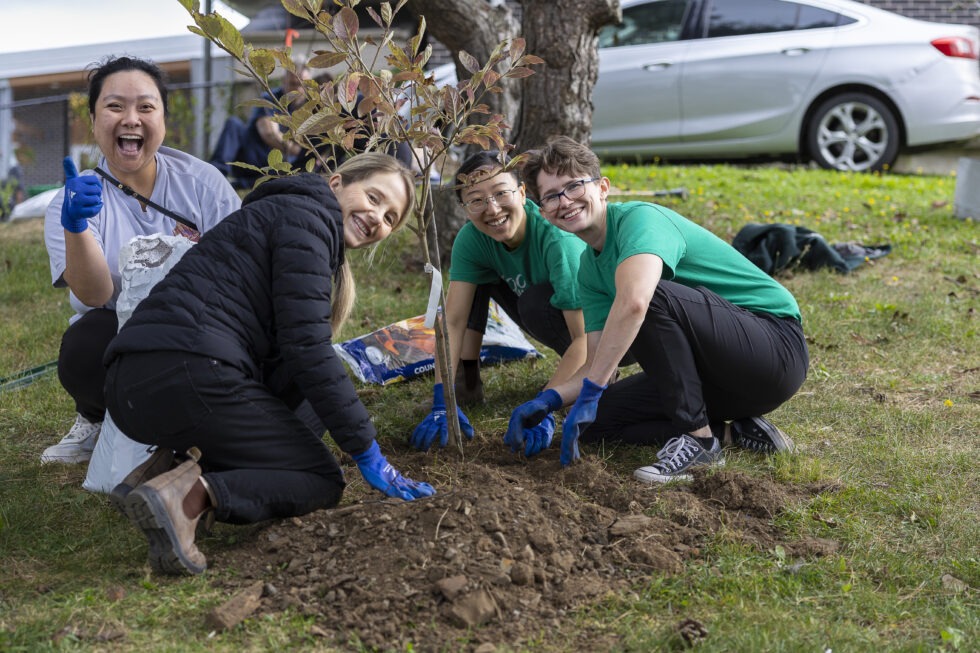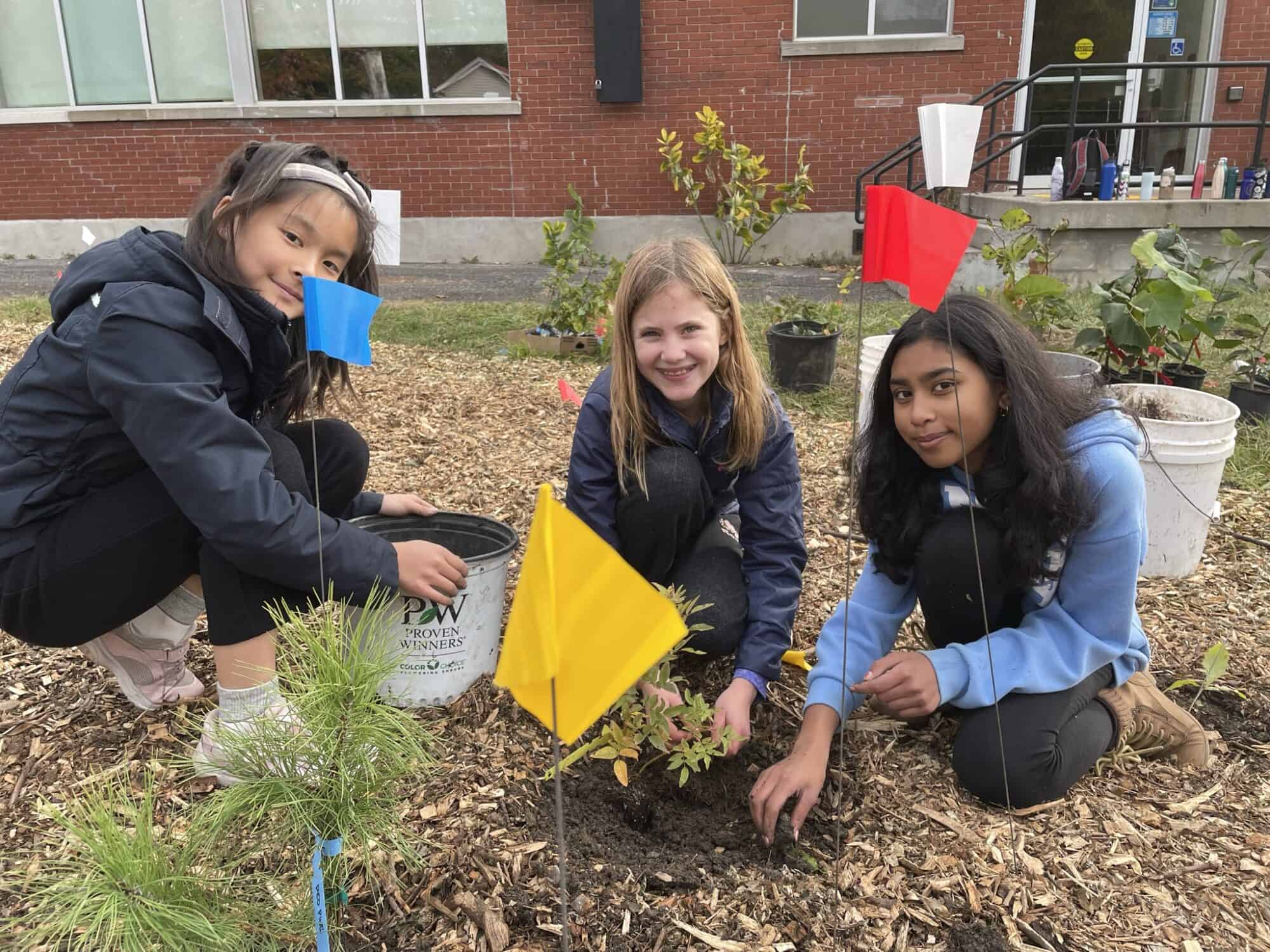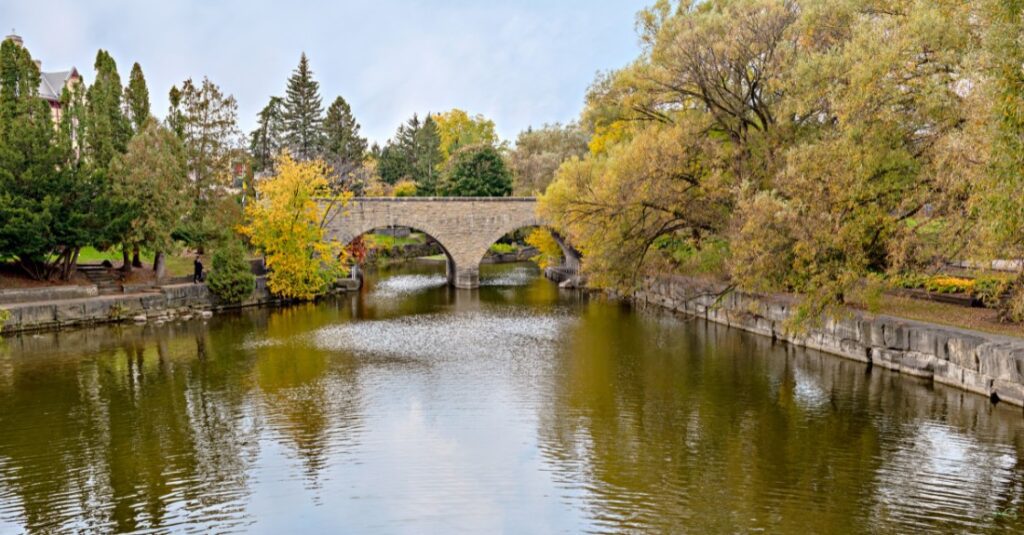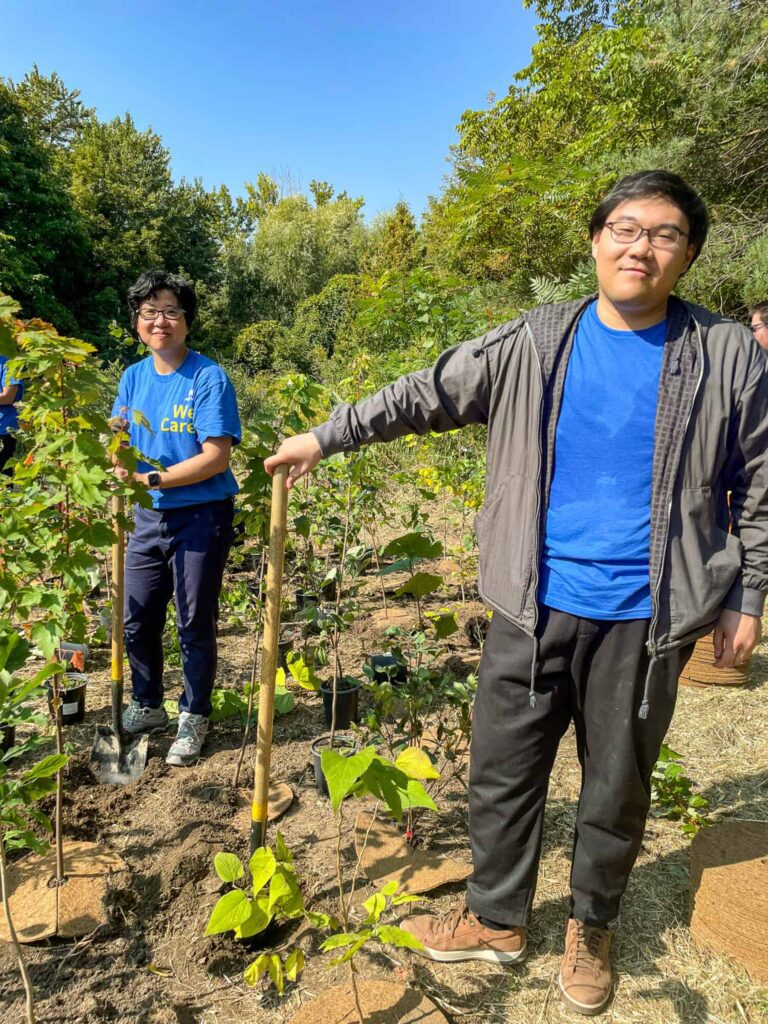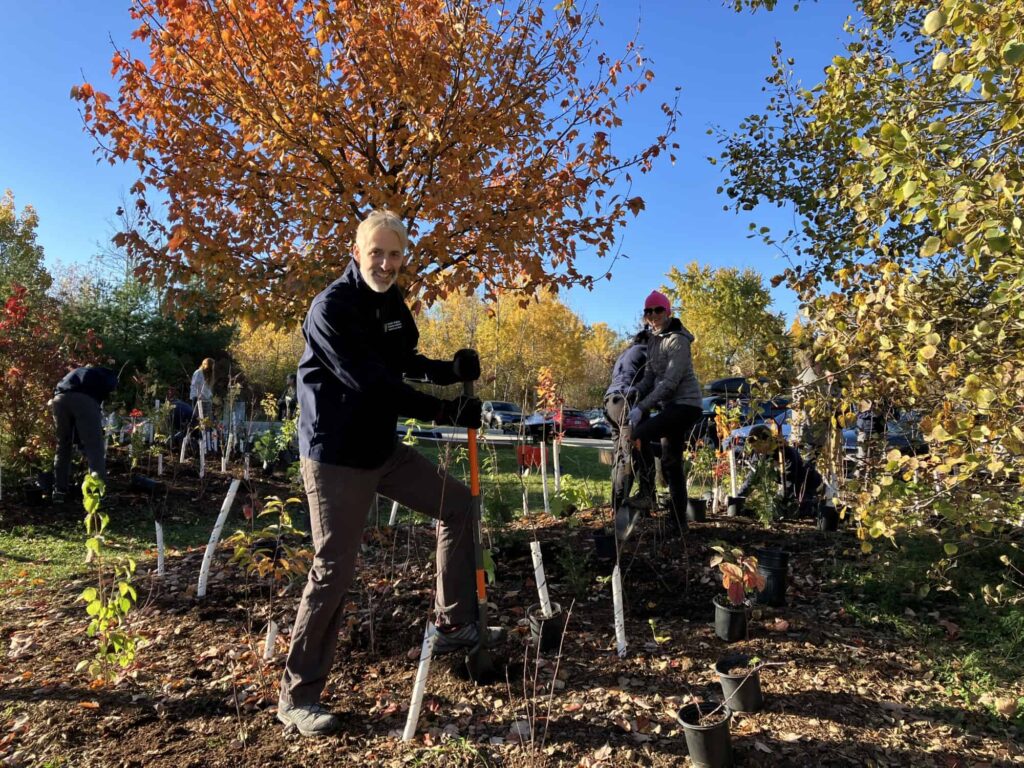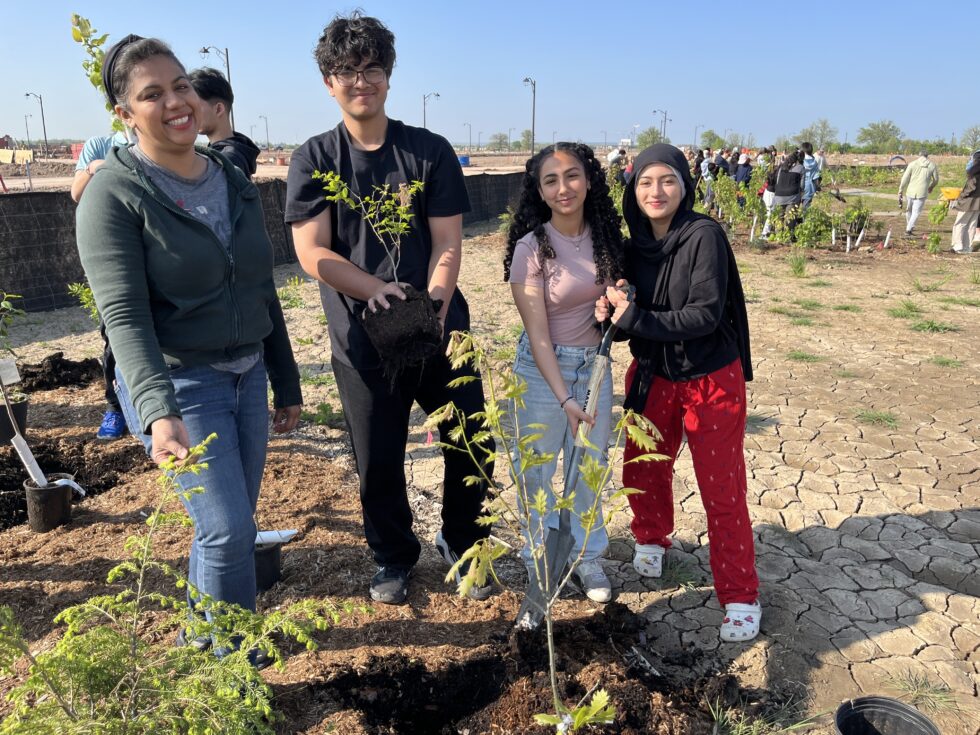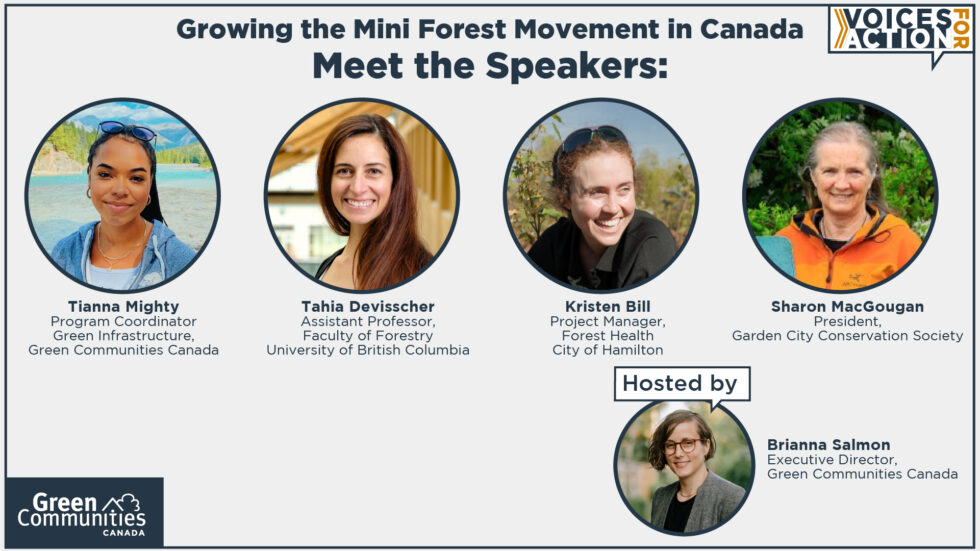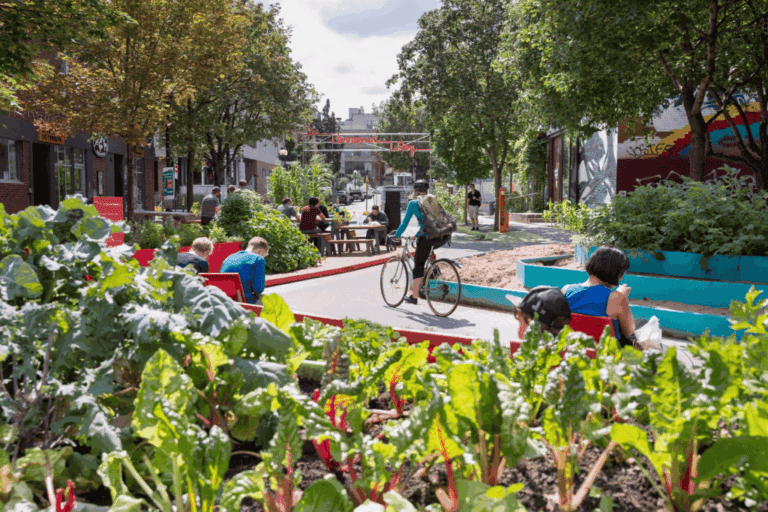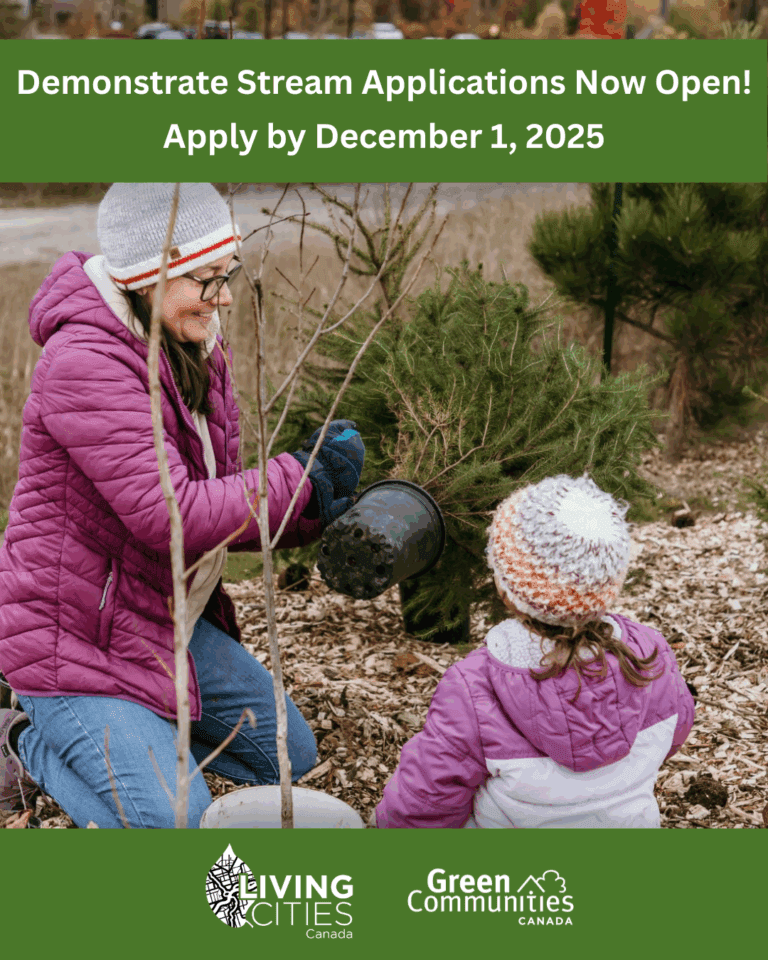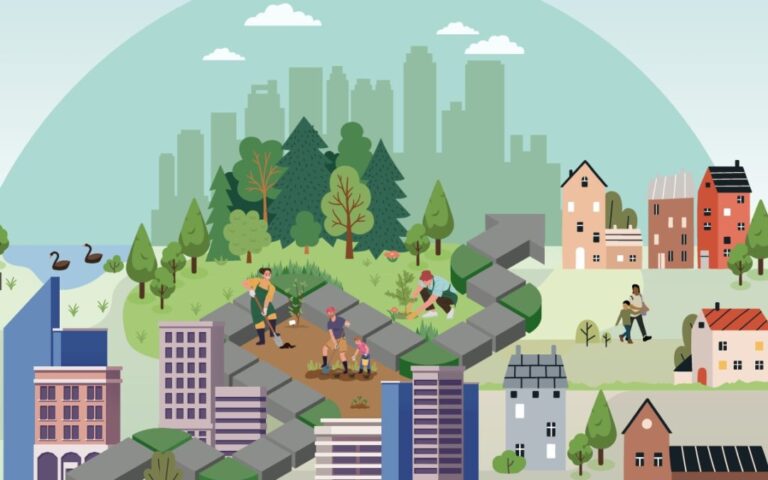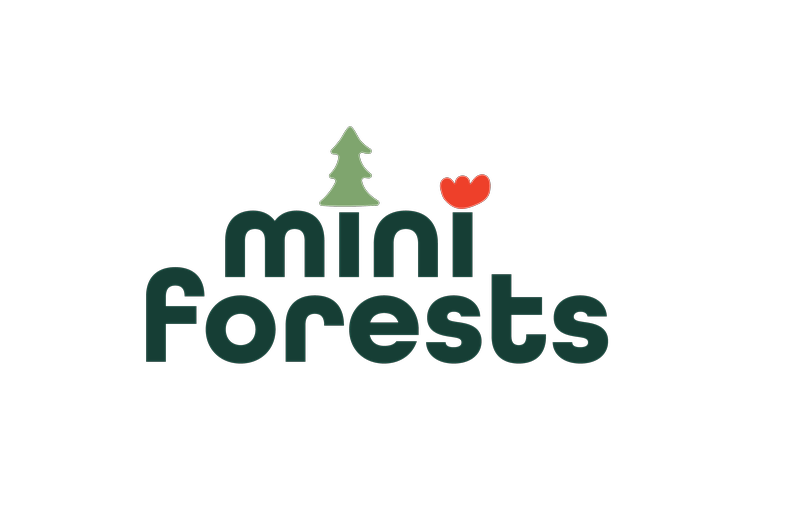
Mini is Mighty!
The Mini Forests program supports local partner organizations and municipalities to transform under-natured sites into thriving urban forests. We use an innovative tree-planting method modelled after the Miyawaki forest technique.
Adding a mini forest delivers big benefits
- Improved mental health benefits
- Rich habitat for wildlife
- Improved air quality
- Reduced heat island effect
- Prevent flooding
- Reduced storm water runoff
Growing Good News in Communities Across Canada
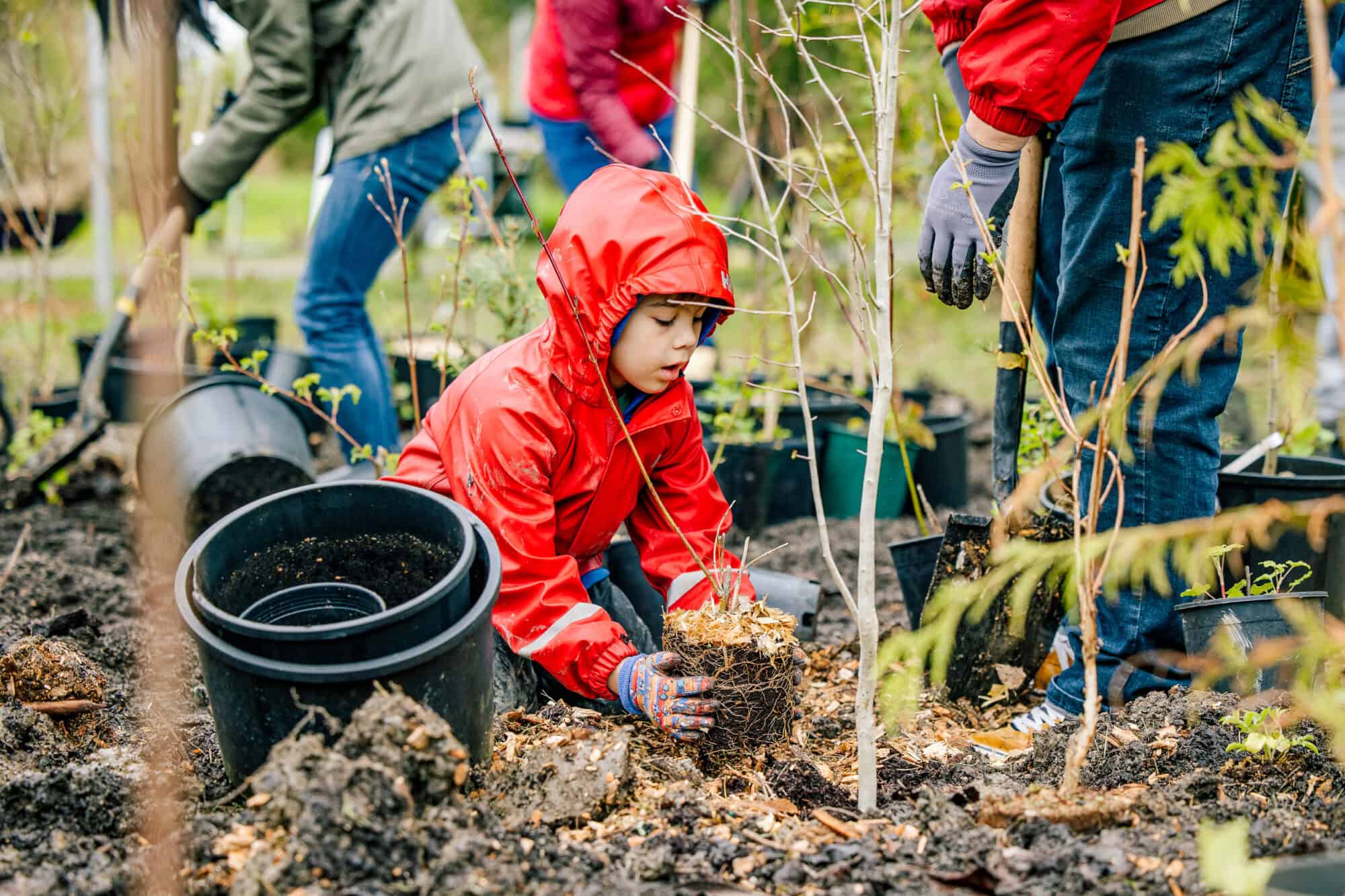
Mini Forests in Canada
Green Communities Canada has been working on green infrastructure like Mini Forests in various capacities for over 15 years.
In 2022 we partnered with the Network of Nature to launch the Mini Forests program as the National Mini Forest Pilot. The intention was to address the growing need for green spaces in urban environments.
We continue to support local partner organizations and municipalities through our Mini Forests program to transform under-natured sites into thriving urban forests.
Timeline for Mini Forests in Canada
Follow the growing movement
Green Infrastructure Stories
We are growing good news in communities across Canada.
Green Infrastructure Resources
Green Communities Canada has developed useful resources to support a wide variety of community-based green infrastructure initiatives. From participator site planning and designing, to video guides, and free online courses – check it out!
